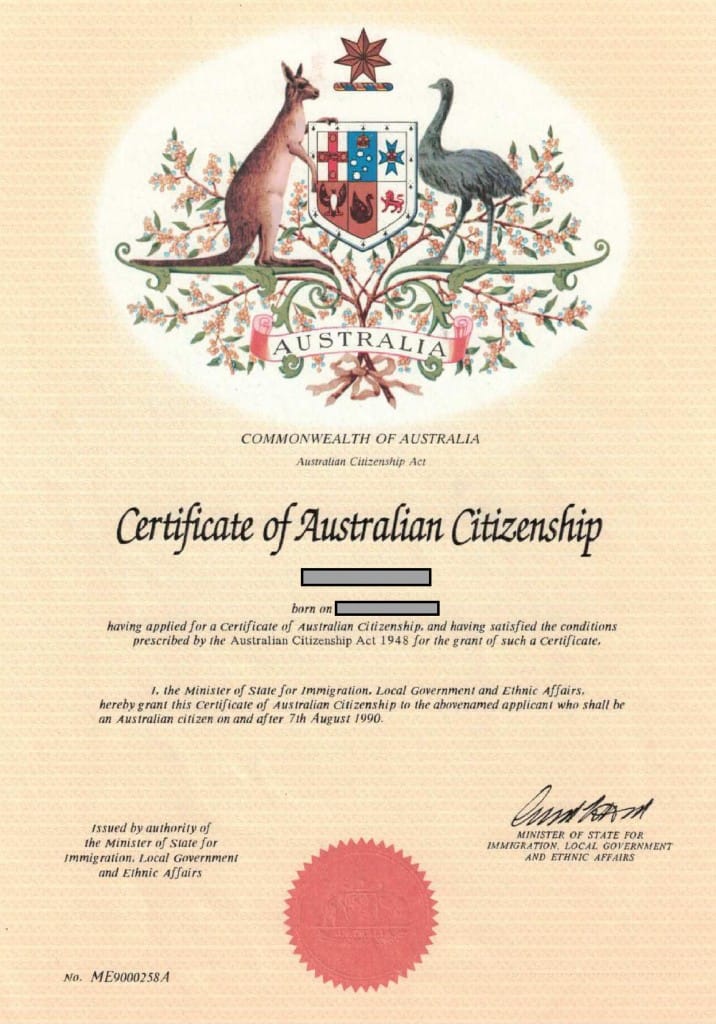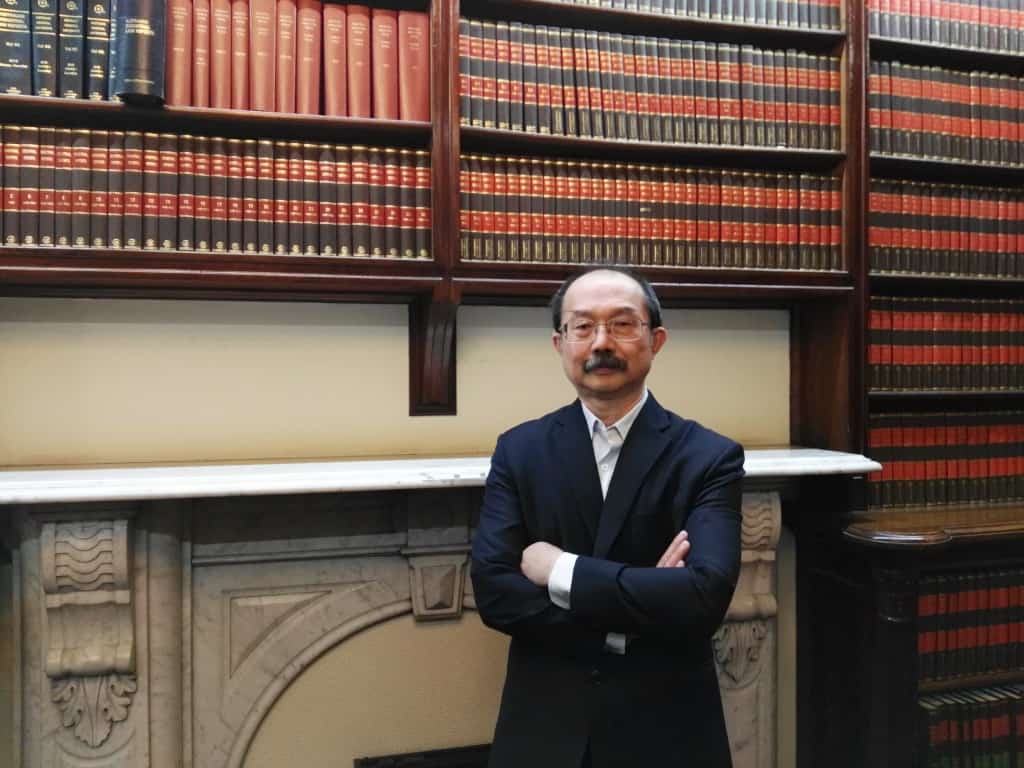
Australian citizenship residency discretions & exemptions – residence requirements or having lived in Australia is necessary to ensure that a person who wishes to become an Australian citizen has spent sufficient time in Australia to gain an understanding of Australia and the responsibilities and privileges of becoming an Australian citizen. Click here to learn more about Australian citizenship general residence requirements.
There is no general power under the Act to waive the residence requirements, however there is a number of ministerial discretions or Australian citizenship residency discretions & exemptions that may be applied to assist a person to meet the residence requirements for conferral of Australian citizenship.
While it is accepted that policy and procedures do not have the force of law, but when exercising powers or making decisions under the Act, decision-maker should give policy documents due weight. It is also accepted that policy and procedures should not be applied inflexibly, and merits of each individual case should be considered.
Certain CPI applies to those who are applying for Australian citizenship by conferral under:
- section 21(2) – general eligibility; or
- section 21(3) – incapacity; or
- section 21(4) – applicants aged 60+ or who have a sight, hearing or speech impairment;
who are required to satisfy 1 of the 4 residence requirements:
- section 22 – general residence requirement;
- section 22A – special residence requirement for those seeking to engage in activities that are of benefit to Australia and for which they are required to be an Australian citizen;
- section 22B – special residence requirements for those engaged in particular kinds of work requiring regular travel outside of Australia.
| Discretion | S 22 – General residence requirement | S 22A – engaging in beneficial activities | S 22B – work requiring regular travel |
| Unlawful non-citizen due to administrative error | Subsection 22(4A) | Subsection 22A(5) | Subsection 22B(5) |
| Not a PR due to administrative error | Subsection 22(5) | Subsection 22A(4) | Subsection 22B(4) |
| In prison or psychiatric institution | Subsection 22(5A) | Subsection 22A(2) & (3) | Subsection 22B(2) & (3) |
| Would suffer significant hardship or disadvantage | Subsection 22(6) | Nil | Nil |
| Partner or surviving partner of an Australian citizen | Subsection 22(9) & (10) | Nil | Nil |
| In interdependent relationship | Subsection 22(11) | Nil | Nil |
| Alternative residence requirement | Not Applicable | Subsection 22A(1A). Only Minister may exercise this discretion | Subsection 22B(1A). Only Minister may exercise this discretion |
Section 22 – General residence requirement
You will meet the section 22 general residence requirement if you:
- were present in Australia for 4 years immediately before the day you apply; and
- were not present in Australia as an unlawful non-citizen at any time during the 4 year period; and
- were present in Australia as a PR for the period of 12 months before the day you apply; and
- were not absent from Australia for more than an accumulated period of 365 days during the 4 year, including no more than 90 days in the 12 months while you are holding a permanent resident visa and before you apply.
You will not satisfy the 12 months permanent residency period if, during the 12 month period:
- you were granted a temporary visa. You will need to wait 12 months from the day you last became a PR; or
- you were granted a temporary visa (for e.g., a Subclass 773 – click here to learn more) allowing you to enter Australia and failed to apply for a RRV Subclass 155 (click here to learn more) before the temporary visa expired, as a result you became an unlawful non-citizen. You will need to satisfy s 22(1) to re-apply; or
- your PR visa ceased when you departed Australia; or
- your PR visa ceased while outside of Australia and before you were granted a RRV.
Meaning of in “Australia”
Section 3 defines “Australia” in a geographical sense, includes the external Territories (include Norfolk Island, Cocos (Keeling) Islands, Christmas Island, the Australian Antarctic Territory, Ashmore & Cartier Islands, the Coral Sea Islands and Heard and McDonald Island).
Working on ships, airplanes and other facilities outside Australia
If you are travelling on a plane or a ship and the vessel does not enter another country, it is taken that you did not leave Australia if you are transiting or remains a passenger, or a member of the crew; and you are outside the migration zone for no longer than the prescribed period (s. 80 of the Migration Act 1958). The prescribed period is 30 days (reg. 3.07). Notwithstanding s. 80, for the purposes of meeting the residence requirement when the vessel is outside Australia, you are deemed not to be present in Australia. However, you may be assessed against the special residence requirement in s. 22B (persons engaged in particular kind of work requiring regular travel outside Australia – Australian citizenship residency discretions & exemptions).
Imprisoned or in a psychiatric facility (s 22(1C))
You will not meet the 4 year residency requirement if you:
- are in a jail; or
- are confined in a psychiatric institution by order of a court made in connection with proceedings for an offence against an Australian law
If you are affected by the above, you could request for Australian citizenship residency discretions & exemptions – section 22(5A) ministerial discretion.
Former Australian citizens and people born in Australia (s 22(2))
If you are born in Australia or was an Australian citizen before making the application, you may not be required to meet:
- s 22(1)(a) – present in Australia for the 4 years before making the application; or
- s 22(1)(b) – not present in Australia as an unlawful non-citizen during the 4 years before making the application.
But you are still required to meet s 22(1)(c) – present in Australia as a PR for the 12 months before making the application. If you have been an unlawful non-citizen during the 12 month period, you will not satisfy this requirement.
Who are former Australian citizens
Former Australian citizens, include (not limited to):
- those born in the former Australian territory, the External Territory of Papua (before PNG Independence Day on 16 September 1975) – ceasing to be Australian citizens in accordance with the PNG Constitution; and
- those who renounced their Australian citizenship.
Ministerial discretions – general residence (Australian citizenship residency discretions & exemptions)
If you do not meet the general residence requirements, you may request the Minister to use his discretions. When making a request, you must provide a statement and supporting documents when you lodged your application. If you do not provide a statement or supporting evidence at the time of lodgement and there is no information available on the Department records that indicates you have applied for a discretion, the decision-maker is not obliged to request for further information and may proceed to a decision on the information before them.
Section 22(4A) – unlawful due to an administrative error
If the Department has made an administrative error recording that you were present in Australia as an unlawful non-citizen for a period of time, the Minister may disregard this period (s 22(4A)). However:
- there must be an administrative error; and
- the error must be the reason why you lack or lacked the necessary legal status.
Examples:
- The Department advised that you are lawful non-citizen when in fact your were unlawful, as a consequence you did not apply for a visa. If s 22(4A) discretion is applied, the time you were given the incorrect advice till when you became aware, or could reasonably be considered to have become aware, that you were unlawful.
- You lodged a valid application for a substantive visa, but a bridging visa was not granted prior to your current visa expiring, resulting you in becoming an unlawful non-citizen.
Section 22(5) – not a PR due to an administrative error
Example, if you are eligible for PR but made an application for a TR because of incorrect advice given by the Department, the Minister may treat this period as being present in Australia as a PR.
This discretion does not apply:
- you travelled on a NZ passport and is a PR but on arriving in Australia you were granted a SCV (click here to learn more about Subclass 444). If this applies, the granting of the SCV is affected by jurisdictional error because a PR cannot make a valid application for a SCV (Item 1219 of Sch1). The grant of the SCV will be treated as a nullity.
- the Department delayed in processing your PR application unless the delay was unreasonable and a mistake or an oversight.
- the AAT or a court sets aside a decision of the Department.
Section 22(5A) – In prison or in a psychiatric institution
If you are confined in a prison or a psychiatric institution, s 22(5A) allows the Minister to disregard the period you are confined if it is unreasonable for s 22(1C) to apply to you. The Minister, when deciding whether to use his discretion, must take into account the circumstances of your confinement:
- Whether your conviction is quashed, or you are pardoned
- If discretion is not applied, your 4 year residency period will commerce from the day you are released from confinement.
Section 22(6) – person in Australia would suffer significant hardship or disadvantage
Section 22(6) allows for periods of lawful residence, other than permanent residence, to be treated as periods of permanent residence for the purpose of meeting the 12 month PR requirement if the Minister is satisfied that you would suffer significant hardship or disadvantage if those periods were not treated as periods of permanent residence.
You must provide a supporting statement to allow s 22(6) to be assessed.
Subsections 22(9) and (10)
This discretion allows for the periods of time spent outside Australia to be counted as time spent in Australia for the purposes of satisfying s 22(1)(a) and s 22(1)(c) when you have exceeded the allowable s 22(1A) absences.
However, this discretion can only be applied to periods when:
- you are a partner of the Australian citizen during that period; and
- you were not presence in Australia during that period; and
- you were a PR during that period; and
- you have a close and continuing association with Australia during that period.
In addition, you must be the spouse, de facto partner or surviving partner of an Australian citizen at time of application. This discretion is only available if the surviving spouse or de facto partner has not become the spouse or de facto partner of another person after the death of their partner and before making the application (s 22(10)). In addition, s 22(9) does not require your partner to have been an Australian citizen during your periods of absence (MIBP v Han [2015] FCAFC 79). The test is whether you and your Australian citizen partner were in the spousal or de facto relationship at the time of making the application and not whether your partner was an Australian citizen for all the period of the relationship.
You will need to provide:
- evidence of your partner’s Australian citizenship; and
- evidence of relationship (e.g., marriage certificate or evidence of de facto relationship).
You should explain the circumstances of your relationship and may include:
- duration of your relationship
- nature and extent of your common residence
- whether a sexual relationship exists
- degree of financial dependence or interdependence
- ownership, use and acquisition of your property
- degree of mutual commitment to a shared life
- care and support of children
- reputation and public aspects of your relationship
You should note that an absence of the above does not necessarily mean you are not in a relationship.
Section 22(11) – interdependent relationship
This discretion is for those whose who has exceeded the 90 days allowable in the 12 months before making an application for the purposes of s 22(1)(c). However, this discretion is only for those who was granted a visa on the basis of being in an interdependent relationship (note that subclasses 110 and 814 were removed in July 2009) or same sex couple (s 22(9)).
SPECIAL RESIDENCE REQUIREMENTS
Section 22A – engaging in activities that are of benefit to Australia
This only applies to certain activities listed under s 22C(1).
Generally, these activities are:
- employment with the Commonwealth in a Department, an Executive Agency or Statutory Agency of the Commonwealth requiring a Negative Vetting 2 or higher security clearance; or
- participating in an Australian team (Olympic or Paralympic) in certain international sporting competitions.
The benefit to Australia must be something more than just your desire or the desire of a sporting association to compete in international sporting events. In addition, you must also be an Australian citizen to be able to compete (including qualifying events).
Furthermore, you must also demonstrate that there is insufficient time for you to satisfy the general residence requirement in order to engage in that activity (s 22A(1)(a)(iv)). And as letter from the head of a specified organisation that you have a reasonable prospect of being engaged in that sporting activity.
Section 22B – engaging in particular kinds of work requiring regular overseas travel
In order to request for section 22B discretion, you must be engaged in certain kind of work (s 22B(1)(a)) requiring regular overseas travel. Generally, you must be:
- a member of a crew of a ship;
- a member of the crew of an aircraft;
- working on a resources installation or sea installation;
- a CEO of an S&P / ASX All Australian 200 listed company;
- an Executive Manager or Executive Director of an S&P / ASX All Australian 200 listed company;
- a Scientist employed by:
- an Australian university and having a PhD, and is undertaking R & D of benefit to Australia; or
- Commonwealth Scientific and Industrial Research Organisation (CSIRO); or
- a medical research institute (AAMRI)
- a medical specialist with certain qualification
- a writer or is engaged in the visual or performing arts holding or held a Distinguish Talent visa (click here to learn more).
Section 22B(1)(c)-(g) discretion – other criteria
You must also:
- be present in Australia for at least 480 days in the 4 years before making the application, including 120 days in the 12 months (s 22B(1)(c); s 22B(1)(d));
- be an ordinarily resident in Australia throughout the 4 years before making the application (s 22B(1)(e));
- be a PR throughout the 12 months before making the application (s 22B(1)(f)); and
- not be in Australia as an unlawful non-citizen at any time throughout the 4 years before making the application (s 22B(1)(g)).
Sections 22A(1A) & 22B(1A) – alternative residence requirements
The Minister with personal, non-compellable powers to apply an alternative residence requirement for those requiring Australian citizenship to engage in an activity of benefit to Australia but unable to satisfy the s 22 general residence requirement, or the special residence requirement set out in sections 22A or 22B.
However, the alternative residence requirement cannot be applied unless you also meet all the other criteria for conferral of Australian citizenship, including intention to reside or continue to reside or maintain a close and continuing association with Australia.
You must also be able to demonstrate that you are engaged in certain activities of benefit to Australia or are engaged in certain types of specific work.
Section 22A(1A) – engaging in activities that are of benefit to Australia
In order to require for alternative residence requirement consideration Australian citizenship residency discretions, you must:
- be seeking to engage in certain activities of benefit to Australia (s 22A(1)(a)(i) and you need to be an Australian citizen in order to engage in the activity but there is insufficient time for you to satisfy the general residence requirement;
- provide a letter from the head of certain organisation stating that you have a reasonable prospect of engaging in that activity and need to be Australian citizen to engage in that activity, and there is insufficient time for you to satisfy the general residence requirement;
- be or have been in Australia for at least 180 days in the 2 years before making the application;
- have been a PR for at least 90 days before making the application;
- have not been present in Australia as an unlawful non-citizen at any time in the 180 days before making the application;
- give the Minister an undertaking that if you become an Australian citizen, you will be ordinarily resident in Australia for 2 years after becoming a citizen and will be present in Australia for a total of at least 180 days during that 2 years. Section 34A allows the Minister to revoke your citizenship if you failed to keep your undertaking;
- your work requires you to travel regularly outside Australia;
- you have been working in that kind of work (requiring you to travel overseas regularly) for at least 2 years during the 4 years before you apply; and
- your work must be of benefit to Australia.
Australian citizenship law is complex and difficult to understand, contact our immigration lawyer for a consultation (fee applies) to help you determine if you are eligible for Australian citizenship residency discretions & exemptions.

 041 222 4020 or WeChat: AUDvisa
041 222 4020 or WeChat: AUDvisa
This article is not intended to be or taken as migration legal advice. The author of this article disclaims any liability for any action or omission on the information provided or not provided in this article. You should always consult an immigration lawyer or a registered migration agent to form an informed opinion on your immigration matter.

